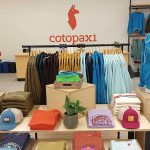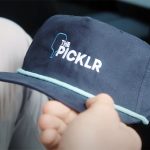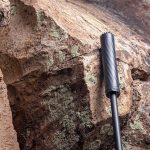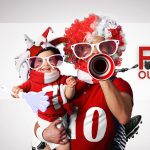In a bid to cut costs amid a nearly 78% decline in earnings since 2005, The Timberland Company is shuttering its Miôn and GoLite outdoor footwear lines in a sudden reversal of its multi-branded outdoor specialty strategy launched three years ago. The decision came early last week after efforts to sell the brands failed. Timberland will inform dealers of the decision in coming weeks. TBL will back warranties on the products and work with retailers to sell through spring inventory.
“We are committed to growing our core brands (Timberland, PRO, Smartwool, IPath and howies),” Timberland spokesperson Robin Giampa wrote in an e-mail response to inquiries from The B.O.S.S. Report. “Miôn and GoLite Footwear, though fully integrated into the enterprise value chain, added a significant amount of cost and business complexity. Given their size and complete integration, MIÔN and GoLite Footwear attracted limited external interest. After considerable time and effort, we decided to wind down these businesses rather than allowing them to continue diverting focus and resources. Both brands still have value and the option to sell continues to be available.”
Investors interested in the GoLite brand reportedly backed off after Timberland disclosed it would not sell them an exclusive right to use the technology that went into the shoes unique sole. Apparently the company intends to incorporate the shoes unique lugged soles into its other outdoor brands. Timberland also declined to comment on what plans it had for Miôns utility patents, which revolve around its lacing system and Ergomorphic footbed.
Miôn, with sales below $10 million, was simply too small for most investors to consider. Current conditions in the credit market and the abundance of other successful water sports offerings by Teva, Keen, Ahnu and others did not help. Still, the decision to pull the plug may say more about the challenges facing Timberland than problems with either of the young lines.
When Timberland launched Miôn at OR Summer Market in 2005, the outdoor industry was atwitter with excitement. The funky looking new line was designed by Martin Keen, the founder and creative genius behind Keen Footwear, one of the industrys great success stories. In late 2005, Timberland added SmartWool socks to its outdoor portfolio and in mid-2006 launched the GoLite line of ultra-light mountain running shoes.
Timberland was so committed to succeeding in the trail running category that it offered to buy GoLite outright just to have control of the trademark. Ultimately, GoLite sold Timberland its name and licensed it back for its line of above the ankle product, including apparel and gear. GoLite co-founder Demetri Coupounas told B.O.S.S. the decision has no impact on GoLite apparel, where he said sales grew 40% last year.
Timberland executives Bill Dodge, senior manager for GoLite Footwear, and Erik Burbank, director of sales and marketing for Miôn, learned of the decision early last week. Both confirmed they are leaving Timberland.
“Its been probably the hardest I have worked and a very positive experience and I told my team they should walk away from this with heads held very high,” said Burbank. “The decision being made was not necessarily on the businesses future, but Timberlands strategic choice to focus on its core brand. What we were able to pull off in a short period of time is amazing.”
Timberland said there are no changes in store at recently acquired SmartWool, iPATH a skate shoe and apparel line – or Howies Limited – a U.K.-based line of action sports apparel.
“Smartwool, IPath and howies are larger and more independent operationally,” Giampa wrote. “They run day to day with limited management or operational input from Timberland.”
Retailers contacted last week said Miôn never caught on despite its popularity among their own staff. Some attributed it to the footwears futuristic styling. Another said that the shoes caused blisters when worn wet without socks not a good attribute for its target consumer of “amphibian athletes.”
“It had a good buzz,” said Norm Cavallaro, president of North Cove Outfitters in Connecticut. “A lot of technical people liked them.”
Still, Cavallaro only carried three of Miôns line of 10 sandals along side a broad assortment of shoes from Teva, Keen and Chaco. “Its not that we did not like them,” he said, “but we started slow and you dont want to bring in something to replace something that works for you.”














